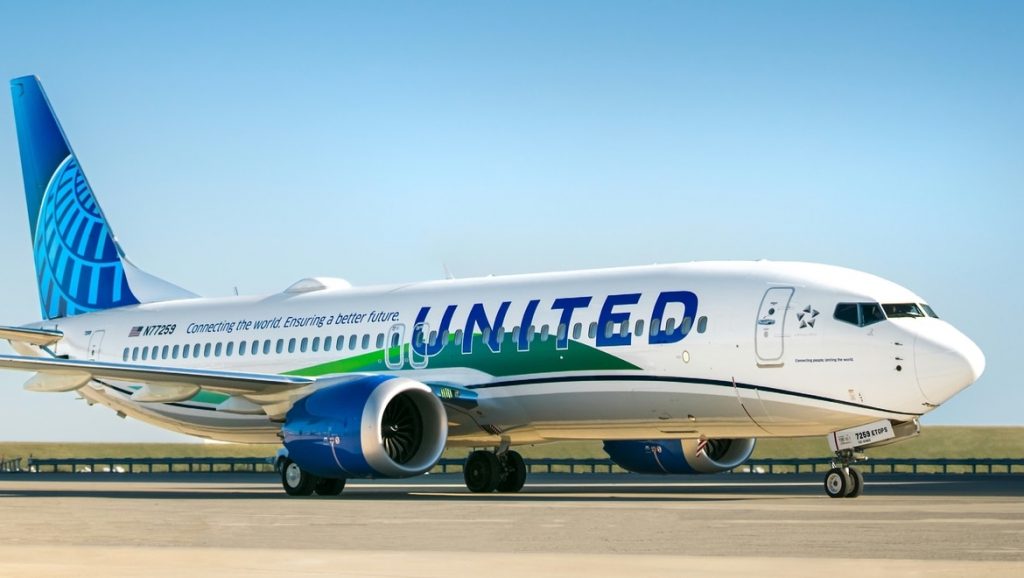
United Airlines has officially operated a flight using 100 per cent sustainable aviation fuel (SAF) in one of the aircraft’s engines – “the first time in aviation history”.
It carried 500 gallons of SAF and the same amount of common jet fuel in the other engine to prove there are “no operational differences,” according to the Chicago-based carrier.
The aircraft carried more than 100 passengers from Chicago’s O’Hare International Airport to Washington, DC’s Reagan National Airport on a Boeing 737 MAX 8 on Thursday, 1 December.
Aviation history is cleared for takeoff.
The world’s first passenger flight using 100% sustainable aviation fuel (SAF) is en route to @Reagan_Airport. pic.twitter.com/63Don45bBg
— United Airlines (@united) December 1, 2021
It comes as airlines have continued to ramp up sustainable operations in a bid to reduce CO2 emissions and meet consumer demand.
Chief executive officer Scott Kirby, who was on the flight, said this is a major milestone to decarbonise the industry.
“When combined with the surge in commitments to produce and purchase alternative fuels, we’re demonstrating the scalable and impactful way companies can join together and play a role in addressing the biggest challenge of our lifetimes.”
Currently, airlines are only permitted to use up to 50 per cent SAF blended with common jet fuel such as kerosene.
In October, several aerospace giants such as Boeing and Airbus joined together to cut through technical barriers of this standard, pushing for 100 per cent SAF allowance, which would inevitably reduce the high price tag of biofuels as its production scales up.
SAF is a type of fuel derived from feedstocks such as cooking oil, solid waste from homes and businesses, waste food and other materials. Using SAF can potentially reduce CO2 emissions by 80 per cent.
United is already in agreements to purchase almost twice as much SAF as other airlines have committed to, according to the company.
Passengers on the aircraft included some of United’s partners of the project, such as Boeing, CFM International, Virent and World Energy.
“As an industry, we are committed to addressing climate change and sustainable aviation fuels are the most measurable solution to reduce aviation carbon emissions in the coming decades,” said Ihssane Mounir, senior vice-president of sales and marketing for The Boeing Company.
In September, President Joe Biden announced advancements of sustainable aviation, such as pledging to reduce aviation emissions by 20 per cent by 2030, on top of previous commitments to reach net zero by 2050.
This push from the government has also accelerated airlines’ interest in using SAF, as advantages such as tax credits and loans for sustainable practices could become available.
United has spearheaded in sustainable practices in recent months, following an agreement signed in June with Swedish start-up Heart Aerospace to purchase 100 of its ES-19 aircraft for short-haul flights.
The 19-seat aircraft has the potential to fly passengers up to 250 miles and is expected to launch by 2026.










